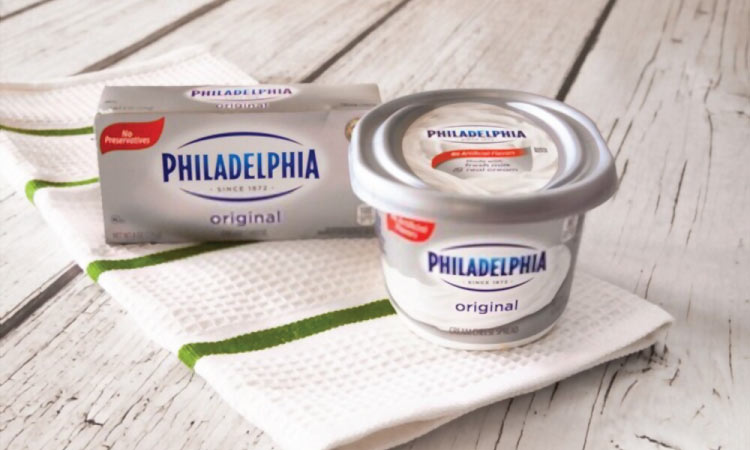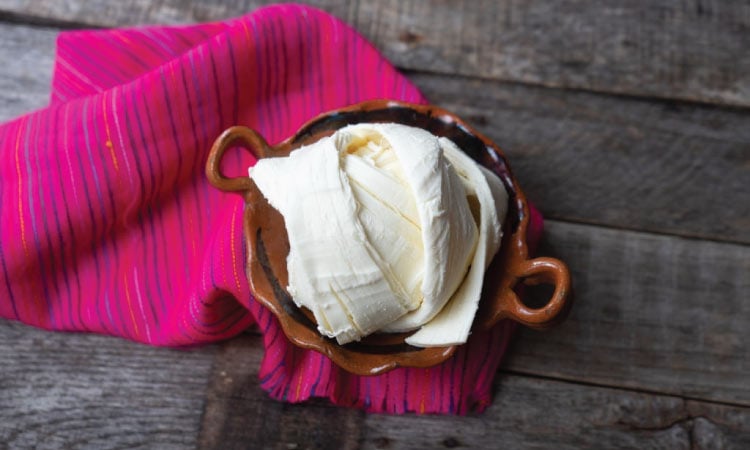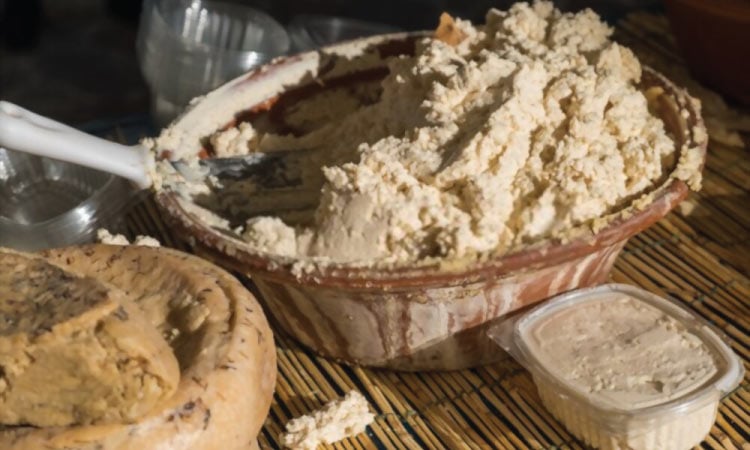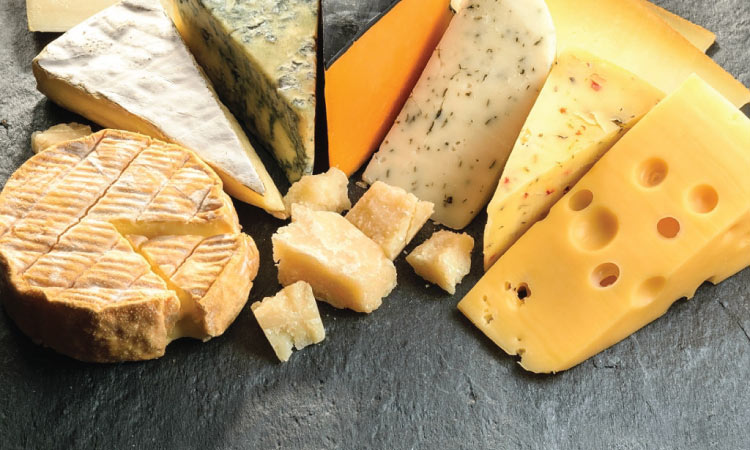Food cravings and aversions are part of pregnancy. Pregnant women should be very careful about not overindulging in certain food cravings, but others should be enjoyed with caution. Foods such as cheese fall in this category. There are cheeses to avoid during pregnancy and cheeses that are beneficial during pregnancy if consumed in moderation.
Read on to find out more about 9 types of cheeses to avoid during pregnancy.
9 Types Of Cheeses To Avoid During Pregnancy
It is not recommended to consume certain cheeses while pregnant. Wondering what cheeses you should avoid when pregnant? Well, the two types of cheese that are not safe to consume during pregnancy are unpasteurized cheeses and mold-ripened soft cheeses.
Related Reading: Tofu During Pregnancy- Benefits And Health Risks
Both of these varieties of cheese are associated with an increased risk of listeria infection during pregnancy. Likewise, eating soft cheese when pregnant is also considered unsafe. Soft cheese carries a high risk of bacterial contamination because it is made from raw and unpasteurized milk.
Pregnant women should avoid eating the following types of cheese:
1. Feta cheese
This soft, unpasteurized cheese, produced from sheep’s or goat’s milk, is typically white. It is one of the oldest cheeses in the world, and it has a rich aroma and slightly sour flavor. To keep it fresh, it’s stored in salted water (brine).
Can I eat feta cheese when pregnant?
It is not recommended to consume feta cheese during pregnancy. Even though it provides excellent nutrients like calcium and protein, feta cheese is counted as one of the cheeses to avoid during pregnancy, because:
Calculate Due Date With LMP
- High sodium content: Excessive sodium in the diet is known to cause high blood pressure during pregnancy, which is harmful to you and your baby
- It contains a significant amount of saturated fat: The saturated fat in feta cheese can raise your blood cholesterol levels. Also, according to studies, more saturated fat in a mother’s diet contributes to increased birth weight and future obesity in fetuses
- Risk of listeria infection: Listeria monocytogenes, a bacterium that is extremely harmful to unborn babies, is present in soft, unpasteurized cheeses such as feta
- High lactose content: Because feta cheese is an unripe cheese, it contains more lactose than other cheeses. Thus, feta cheese is not good for expecting mothers with lactose intolerance
Though proteins are a must have for a healthy pregnancy, you can choose the best options from our list of protein rich foods for pregnancy.
2. Philadelphia cream cheese

Philadelphia is a popular brand of high-quality cream cheese used in household baking and cooking. It is also used as bread spreads. It is a soft, usually mild-tasting fresh cheese made from milk and cream.
Can I eat Philadelphia crème cheese during pregnancy?
Philadelphia cheese is made with pasteurized milk, and therefore carries less risk of listeriosis. Still, eating Philadelphia cream cheese when pregnant is not a good idea. This is because:
- May trigger an allergic reaction: Pregnant women are susceptible to many infections and might get cramps, gas, nausea, bloating, and even diarrhea after having cream cheese
- It is relatively low in protein and high in fat and calories
- Trigger digestive issues: Cream cheese can potentially bring about digestive problems. Eating Philadelphia cream cheese during pregnancy makes expecting women susceptible to hives and vomiting
3. Pimento Cheese
Pimento cheese is made with cheddar cheese, pimento peppers, and mayonnaise. It is used as a dip and sandwich spread.
Can I eat pimento cheese during pregnancy?
Commercially made, top brands of pimento cheese are made from pasteurized milk, so it, therefore, may not cause much harm to pregnant women.
However, pimento cheese made at home or in restaurants may not be safe for pregnant women. This is because the mayonnaise used to prepare this cheese is made with unpasteurized raw eggs.
The two illnesses that can come from eating home/restaurant made Pimento Cheese during pregnancy are:
- Salmonella infection: One can get it from eating undercooked eggs
- Listeriosis: If you consume pimento cheese made from unpasteurized milk, it increases the risk of listeriosis. Listeriosis during pregnancy can result in adverse consequences like premature birth
4. Chevre
Chevre is a general term that refers to any cheese made from goat’s milk. It is commonly used in restaurants and is an ingredient in many types of cheese salads. There are different varieties of goat cheese.
Some goat cheese is hard while some are soft. Not all goat cheese is safe during pregnancy.
Can I eat Chevre during pregnancy?
The cheese commonly called chevre is soft goat cheese. This White rind cheese is considered unsafe during pregnancy, as it is mold-ripened. Cheese made from molds carries the risk of listeriosis.
Related Reading: Curd And Yogurt During Pregnancy- Benefits, And Precautions
5. Blue cheese
Blue cheese is an aged cheese (cheese that has been kept in a cool, humid environment, like a cellar for a long period) made from cow, goat, or sheep milk. The distinctive blue spots make it stand out. The spotted appearance in blue cheese is a sign of fermentation. This cheese has a spicy, sharp, and pungent flavor.
Can I eat blue cheese during pregnancy?
When it comes to the safety of blue cheese in pregnancy, pasteurization isn’t the only factor to consider. Safety also depends on whether it is soft or hard in texture.
It is better to avoid blue cheese during pregnancy because
- This type of cheese is high in sodium, which means it can shoot up pressure during pregnancy
- The majority of blue cheeses are made with unpasteurized goat milk. This increases the risk of listeriosis, which is extremely dangerous for unborn babies
- Pregnant women should avoid all soft blue cheese, even if they’re made from pasteurized milk. According to studies, the increased water content in soft cheese (even pasteurized versions) may increase the susceptibility to listeria
6. Queso fresco cheese

Queso fresco is a Mexican cheese, traditionally made from raw cow milk, or a combination of cow and goat milk. The cheese is soft, crumbly, and moist by nature, and has a salty-sour taste. It is often used as a garnish on all kinds of Mexican food, or as a stuffing cheese.
Can I eat Queso fresco cheese during pregnancy?
Queso fresco cheese falls into the category of soft cheeses. It is better to steer clear soft cheeses during pregnancy unless the label says they are made with “pasteurized milk.” Do not buy Queso cheese from unauthentic sources like door-to-door salesmen.
One should avoid this cheese during pregnancy as
- It has been found that even if it is made from pasteurized milk, if made in an unsanitary condition, it still poses the risk of serious infectious diseases, including, listeriosis, salmonellosis, brucellosis, and even tuberculosis
Related Reading: 10 Drinks To Avoid During Pregnancy
7. Roquefort cheese
Roquefort cheese is a type of blue cheese native to France. With its strong smell and creamy flavor, this cheese pairs well with nuts, fruits, and wines..
Can I eat Roquefort cheese during pregnancy?
This cheese is incredibly high in sodium and saturated fats and is aged for several months.
- High sodium levels and saturated fats are unhealthy combinations during pregnancy
- The cheese is aged for several months for the development of the harmless, flavourful mold. However, if not properly stored, dangerous molds may also grow, which cannot be distinguished from innocuous ones. Ingesting these molds could be dangerous during pregnancy
8. Gorgonzola cheese
Gorgonzola is an Italian blue cheese made from cow milk. The Penicillium Roqueforti fungus, which is added to the milk at the beginning of the cheese-making procedure, creates its distinctive blue to blue-green marbling. The flavor of Gorgonzola cheese varies depending on how long it has been aged. The flavor ranges from buttery and creamy to nutty and sharp.
Can I eat Gorgonzola cheese during pregnancy?
Even if pasteurized, this type of soft cheese is not recommended during pregnancy.
- Blue/green marbling in these cheeses is often derived from specially injected bacteria, which promotes the circulation of oxygen and the growth of the mold. Although the bacteria accelerate the ripening process, undesirable bacteria may be introduced to pregnant women’s bodies
- Another risk of eating pasteurized gorgonzola while pregnant is the high moisture content, which promotes the growth of listeria bacteria
Related Reading: 21 Pregnancy Superfoods To Include In Your Pregnancy Diet
9. Casu Martzu

Without referring to Casu Marzu, the world’s most dangerous and illegal cheese, we can’t end this blog. It is a homemade Italian traditional cheese. The name Casu Martzu means rotten cheese.
Can I eat Casu Martzu cheese during pregnancy?
Casu Martzu is regarded as one of the most dangerous cheeses in the world, and having it during pregnancy is a big no.
- It is made from sheep’s milk that is deliberately infected with insect larvae.
- This cheese is notorious for the live maggots crawling within it. It is the digestive action of these larvae that gives Casu Marzu its soft texture, making it easily spreadable.
Conclusion
You don’t have control over your pregnancy craving. Although cheese cravings may not be good or safe, being cautious about the type of cheese that you consume can help you stay safe. In case you notice any unusual symptoms while pregnant, be sure to contact your doctor.
FAQs
Lox is nothing but a way to prepare salmon. Instead of cooking or hot-smoking it, salmon is cold-smoked after a salt-sugar rub or after curing in brine.
Lox is typically served with cream cheese and a slice of tomato on a bagel. Cream cheese carries a risk of listeriosis, which is not favorable for pregnancy. Hence, it is wise to stay away from lox cream cheese during pregnancy.
Cream cheese is a cheese spread made from pasteurized milk. It is not a soft cheese. As a result, pregnant women can consume it safely. However, unlike other cheeses, cream cheese does not have a long shelf life.
So, keep an eye on the expiration date or consume it within two weeks of purchase, whichever comes first.
Because pasteurization eliminates harmful bacteria, mozzarella made from pasteurized milk is safe to consume during pregnancy. You can have it both in cooked and in its fresh, uncooked form. Check food labels carefully to ensure that any mozzarella you buy is made from pasteurized milk.

